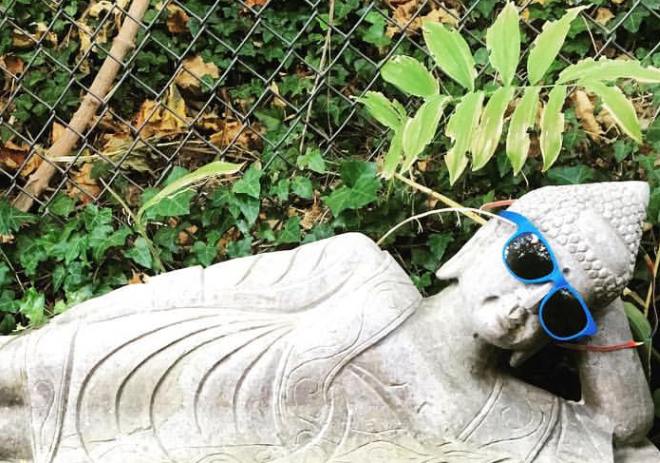If you ask me what my year-end ritual is, I would say “having expectations.”
This is just something that occurs naturally. We desire certain things, certain outcomes. And we tend to want to avoid loss and painful endings.
And as the year ends, we might not be so fond of the troublesome events that took place. If we could travel back in time, we would change the outcome of some things—or, at least, stop them from unraveling or decaying.
We may wish we could have kept our lover from leaving or our parent from falling ill. Keeping that job or maintaining financial stability would have been just fine as well. Let’s not talk about the wrinkle or two appearing on our face or the white hair that’s growing. And please, don’t mention the enchanting moments we wished had lasted forever.
Instead of opening our eyes and seeing the nature of the world for what it is, we sink deeper into our own delusions. And so, we enter the new year with the presumption that we can keep this relationship, or that job, or these emotions.
It took me a long time to realize that I can’t keep what’s meant to end—including my own body, thoughts, and sensations. In Buddhism, this concept is known as anicca, which means impermanence.
The Buddha recognized that impermanence is an inevitable and undeniable part of our existence. Beginning with our own body’s cells, everything is subject to change or decay. Buddhism accepts that we can’t change or control any of these five processes:
1. Growing old.
2. Falling sick.
3. Dying.
4. Decay of perishable things.
5. The passing away of that which is liable to pass.
The main reason for our suffering is our refusal to accept the phenomenon of alteration. And this, most probably, is the reason we end up feeling so disappointed at the end of every year.
The bad news is we can’t escape impermanence. But, the good news is we can learn how to cope with it. If we enter the new year without the expectation of how things will turn out, perhaps they will turn out just fine. Arriving at a definitive conclusion in our minds before events take place only causes us to suffer.
We often imagine happily-ever-after scenarios in our minds before events have even taken place, which typically results in disappointment—and our own suffering. And even if things do turn out the way we hoped, we may be disappointed later down the line, when things inevitably begin to change and the bliss of the moment begins to fade away.
This Buddhist approach might appear pessimistic or negative—but it’s not. The Buddhist approach to perceiving the world as it is—in constant fluctuation—is rational, realistic, and pretty optimistic, really. We don’t have to imagine happily-ever-after endings, because the truth is that all that happens is for the best. When we become aware of the impermanent nature of our existence, we’ll realize that change happens for us and not against us.
Imagine that you are still the same person you were 10 years ago. Take a moment, and visualize yourself still at that energy-draining job or still stuck in that dysfunctional relationship. Back when we had certain things, it may have felt good no matter how bad they were, because familiarity is desirable. The fear of the unknown is what makes us so terrified of change. Consequently, we assume we’ll get certain results or expect things will turn out this or that way. We hold to our own expectations, and we think we can control or change the outcome in our favor. But we cannot.
So, let’s muster up the courage to enter the new year without expectations. Start practicing looking at the world from a realistic point of view. Observe how nature frequently changes. Observe the transformations of your own body, beliefs, and thoughts from year to year. Don’t rebel against impermanence—rather, observe it happening around you and become friends with it.
We don’t have to focus on the impending endings, but we can anticipate them. When something ends or when we lose someone, it’s easy to become emotionally charged. But, along with all our feelings and rage, let’s try to gain some insight into accepting that this disappearance is crucial for another new beginning to occur.
I always tell myself: I may not be able to change external circumstances, but I can choose to control my reactions. As I enter this new year, I know that unfavorable outcomes will take place—and the truth is, it feels comforting and liberating. I don’t fool myself into thinking I can keep what is meant to depart. I’m not tricking myself into thinking that I can stop the winds of change from coming. When change comes, I shall dance with it.
~
Relephant:
10 New Year’s Resolutions the Buddha (probably) would have Made.
~
Author: Elyane Youssef
Image: Flickr/Tracy Ducasse
Editor: Yoli Ramazzina
Copy editor: Callie Rushton
Social editor: Callie Rushton
 Share on bsky
Share on bsky






Read 33 comments and reply